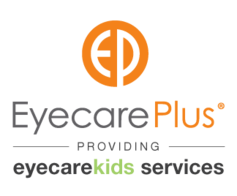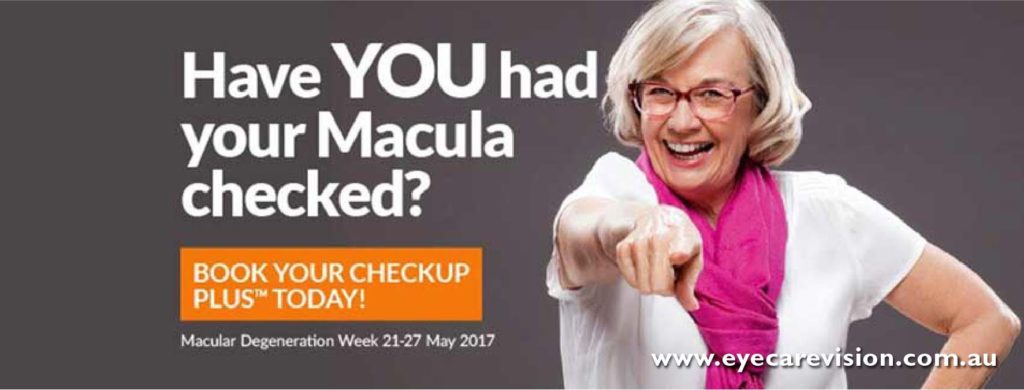
Dr Vincent Tran, optometrist at Eyecare Plus Roselands, gives a comprehensive insight on six frequently asked questions on Australia’s leading cause of blindness—macular degeneration.
Q: I have a family history of macular degeneration. How often do I need to get checkups?
A: One of the primary risk factors for MD is genetics/family history. It has been shown that you can have up to a 7.5x higher risk of developing MD if there is a family history of the disease.
If there are no signs of MD in your eyes yet—it is important to still get yearly checkups.
If there are early signs of MD—our optometrist may monitor you more frequently than 1 year and will also explain to you how you can regularly check the health of your own macula at home.
If there are moderate signs of MD—our optometrist will likely recommend to see you at least every 6 months. They will ensure you know how to check your own macula and also recommend strategies on how to reduce the risk of your MD getting worse.
If there are signs of advanced MD—our optometrist will organise an urgent referral for you to see an eye specialist.
Q: What are the earliest possible symptoms of macular degeneration?
A: Usually early stages of macular degeneration have no symptoms—people will not be able to tell that there is anything wrong with their vision, which is why annual checkups are important.
However, people may experience worsening of their vision (when trying to see small details), difficulty seeing objects that have poor contrast, and also distortion or missing parts of their central vision.
Q: How common is macular degeneration in adults who are younger than 50 years old?
A: Approximately 10% of people from the age of 43-54 may have some form of MD.
This risk triples to approximately 30% for people aged 75-85 years of age.
However, this risk changes based on your individual risk factors—so it is important to see our optometrist to have a full checkup and find out what risks you have for MD.
Q: What are things I can do on my end to prevent MD?
A: We can’t change our genetics or age, but there are several things that have been shown to reduce the risk of getting MD or worsening MD:
Healthy diet. Based on research, the MD foundation Australia recommends a diet rich in omega-3, vitamin C, lutein & zeaxanthin, selenium, vitamin E and zinc.
MD supplements. It can be difficult to ensure you are getting all the vitamins necessary to reduce your risk of MD. We recommend MDeyes as a supplement. This formulation is specifically based on the evidence of AREDs-2, the largest study on this topic, which has shown to reduce the risk of worsening MD by 25%. At your next eye checkup, ask our optometrist if you are suitable to take these supplements.
Smoking. Smoking significantly increases the risk of developing or worsening MD. It has been shown that stopping smoking reduces the risk of MD progression. People who have stopped smoking for 20 years have an equal risk to people who have never smoked.
Cardiovascular health. Good control of your blood pressure and other cardiovascular diseases is suggested to reduce the risk of MD
Exposure to UV light. It is suggested that exposure to UV light, especially blue light, is a risk factor for MD. The latest lens technology (blue control coatings) have been shown to reduce the amount of blue light entering the eyes, which is thought to be harmful over time. This can reduce the risk of MD as well as other eye diseases such as cataracts and pterygiums. Our optometrist can recommend these extra blue coatings to help control your risk for MD.
Q: I just got diagnosed with AMD (age-related macular degeneration). What is the likelihood that my AMD will progress?
A: Research has shown that patients with intermediate MD in one eye only have a 6% risk of progression to advanced AMD in 5 years.
This ranges from 26% risk of progression to advanced AMD in 5 years if there is intermediate MD in both eyes.
This large increase in risk is why it is important to reduce your risk of MD as much as possible by following the recommendations made by our optometrist.
Q: When I walk into your practice for an MD check, what will I expect?
A: Our optometrist will perform a thorough eye check—paying close attention to your vision and also taking a careful history to fully assess your risk for developing MD.
Our optometrist may put in drops to closely check the health of your macula.
Other tests that our optometrist may do is digital retinal imaging of the eye. This will allow us to have a medical record of the current and past health of your eyes. This allows us to very carefully check for any worsening or development of MD, so that we can recommend the best individual advice for you.
Our optometrist may also perform ocular coherence tomography (OCT) imaging of the eye. If there was a single test, this is the most important one. This allows us to see the layers of the retina down a microscopic level, which is not visible with normal eye testing. This allows us to see the direct cause of the MD and also see if there are any signs of bleeding and/or changes that may increase your risk of developing MD.
Amsler grid testing—our optometrist may record what you see with an Amsler grid. They will also give you a copy of the grid to keep at home to check regularly so that you yourself can monitor if there is any change in your macular degeneration.

